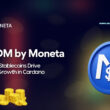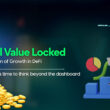There has been a lot of growth in the NFT sector in crypto in the last year. With this growth, several challenges have risen, including the cost of NFTs and inaccessibility due to rarity. Therefore, fractionalization is becoming a realistic solution for driving forward the next chapter of this fast growing sector.
NFT fractionalization is the act of dividing the ownership of an NFT into smaller fractions, making it possible for several people to own a single NFT. NFTs, unlike cryptocurrencies, are non-fungible tokens which cannot be exchanged for other assets. Fractional NFTs, hence, push the boundaries by making it easy to divide ownership of a single NFT.
Fractional NFTs make it possible for democratized ownership such that even as the order price of NFTs increases, market activity around the NFT remains fairly high as more people can participate at lower prices. If one of the owners of the NFT chooses to sell, their move will not affect the general value held by other stakeholders.
Fractional NFTs have the ability to bring a great deal of liquidity to NFT marketplaces. The non-fungibility of NFTs will result in a lack of liquidity on most marketplaces in the future. However, with fractional NFTs, liquidity can be sustained since smaller investors can take part as opposed to having only rich and able collectors.
The Proposal
dcSpark, the team behind this proposal has already published a Plutus dapp called Fracada, for fractionalized NFTs which has not been audited yet, and only supports fractionalizing single NFTs. The current proposal is to publish a v2 of Fracada that is both audited and supports the fractionalization of a bag of NFTs.
The way Cardano works makes NFTs an extremely important part of dApps to the point where almost all eUTxO (Cardano-based) dApps have to use NFTs. Since NFTs are very important core primitives to Cardano, Fracada was made entirely open-source with a free to use MIT license. It has since experienced huge interest from many NFT marketplaces wishing to implement it into their platform. However, since the smart contract is not audited yet, it is hard for a platform to justify the risk.
To unleash the potential of fractionalized NFTs on Cardano, dcSpark wants to continue development of this dApp by adding the ability not only to fractionalize a single NFT, but also fractionalize an arbitrary bag of NFTs. Fracada locks an NFT and mints a number of tokens representing fractions to it. In order to get the NFT back, the fraction tokens are burned. The protocol has three steps: locking the NFT, minting tokens and returning the NFT.
The Team
dcSpark is the company behind this proposal as well as 23 others on Project Catalyst. The company has 4 employees, CSO Robert Kornacki, CEO Nicolas Arqueros, CTO Sebastian Guillemot and investor Andrea Kalmans. The team has many years of experience developing dapps for Cardano and has also worked with EMURGO, the global blockchain technology company responsible for Yoroi, the main Cardano wallet.
Budget
The team is requesting funding amounting to $50,000 broken down into two:
– 35K for audit & addressing audit findings
– 15K for development of Fracada v2
Final Thoughts
Fracada is a project in the market that has already attracted users. However, since the code is not audited, it is not recommended as it is hard for a platform to justify the risk. The proposal is forwarded by a team that has worked with Cardano before as well as made many other meaningful proposals in the past. Auditing of the project will allow NFT marketplaces to implement it, as well as serve more developers in future. This project will contribute to the benefits attached to fractional NFTs and shape the future of this budding sector.










